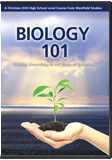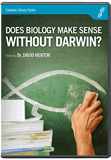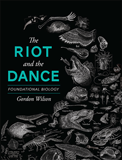Disinfectants Train Microbes
BBC News: “Disinfectants ‘Train’ Superbugs to Resist Antibiotics” We’ve responded before to the claim that antibiotics cause microbes to “evolve” resistance (as if it didn’t exist before). Is the idea that disinfectants “train” microbes to become resistant any different?
A team at the National University of Ireland studied the response of bacterium Pseudomonas aeruginosa to a disinfectant. P. aeruginosa commonly infects those already ill, resulting in opportunistic infections in hospital patients—so it is already a prime target of hospital disinfectants. But when subjected to “increasing amounts of disinfectant” in the lab, P. aeruginosa cultures developed resistance not only to the disinfectant but also to the antibiotic ciprofloxacin—even though the cultures were never exposed to ciprofloxacin.
Disinfectants used in hospitals can be counterproductive (potentially).
The resistant P. aeruginosa had a mutation that let them “pump out” harmful substances—be they disinfectants or antibiotics—from their cells. They also had developed a particular resistance to ciprofloxacin.
The danger the scientists point out is that disinfectants used in hospitals can be counterproductive (potentially), ensuring that whatever microbes do reach patients will already be resistant to antibiotics. Ironically, however, the problem was made worse in the lab by the high concentration of disinfectant used. The lower levels used in hospitals are thus less of a concern. But researcher Gerry McDonnell noted, “This really needs to be an area of active investigation and debate. But it’s worth bearing in mind that disinfectants may not just be the problem, they may also be the cure.”
Our guess is that a minority (perhaps a very small minority) of individuals in the P. aeruginosa cultures already had the “mutation” enabling them to counteract the disinfectant. This mutation would not represent new genetic information, but more likely the corruption of existing genetic information. As such, this difference would make the “mutants” less successful under ordinary circumstances, but after the disinfectant destroyed all other P. aeruginosa, the resistant individuals could thrive. While the population as a whole could be said to have “evolved,” the genetic information in the population would be reduced overall—the opposite direction of genetic change from that which is required for molecules-to-man evolution.
For more information:
Remember, if you see a news story that might merit some attention, let us know about it! (Note: if the story originates from the Associated Press, Fox News, MSNBC, the New York Times, or another major national media outlet, we will most likely have already heard about it.) And thanks to all of our readers who have submitted great news tips to us.
(Please note that links will take you directly to the source. Answers in Genesis is not responsible for content on the websites to which we refer. For more information, please see our Privacy Policy.)
Recommended Resources

Answers in Genesis is an apologetics ministry, dedicated to helping Christians defend their faith and proclaim the good news of Jesus Christ.
- Customer Service 800.778.3390
- © 2024 Answers in Genesis







